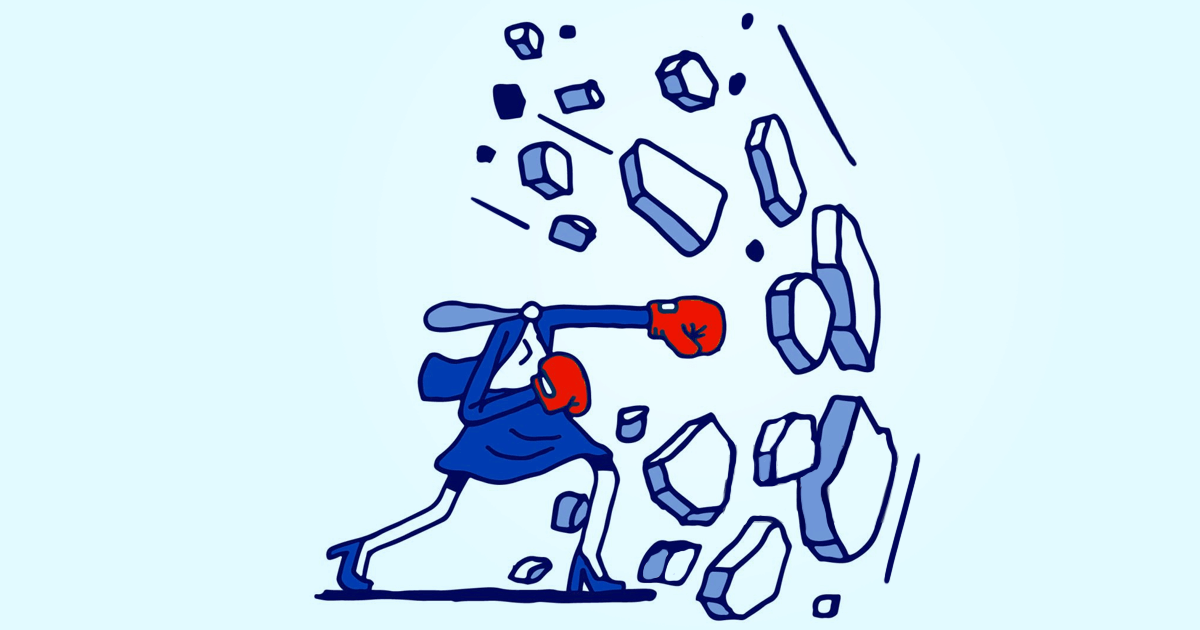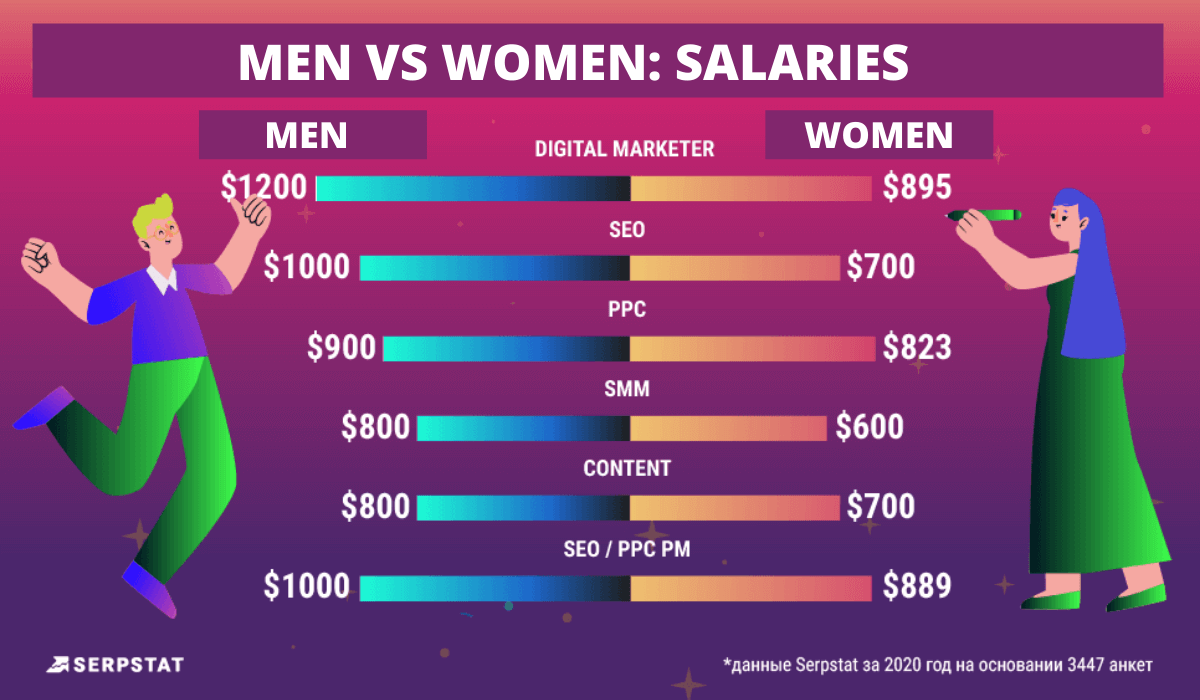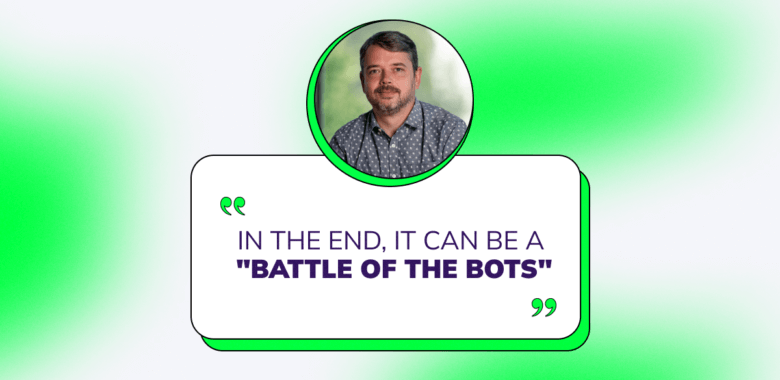We say a huge thank you to everybody who contributed to this article:
- Mariia Lo, founder at Emailix Email Marketing Agency
- Yuliana Kalaytanova, founder at Bershena Email Marketing Agency
- Varvara Romanova, localization manager, Joom
- Valeria Shulga, author/community manager, Selzy
- Ksenia Burkina, administrative director at Skillbox
- Evgenia Budrina, editor-in-chief, Selzy
- Alexandra Smarovidlo, CMO at Cliently
Facts to consider before you read
Before you start reading, here are some facts that’ll make it easier to understand the reasons behind many of the stories below.
- The gender stereotypes are much stronger in Russia/Ukraine than in the Western part of the world. The culture of men being mostly breadwinners and women taking care of the family is still thriving, especially beyond the big cities. Lots of women tend to be on maternity leave for years, while the overwhelming majority of men regard taking care of kids as “women’s job”.
- The salary gender gap in digital careers is real. This is the research data from 2020:























